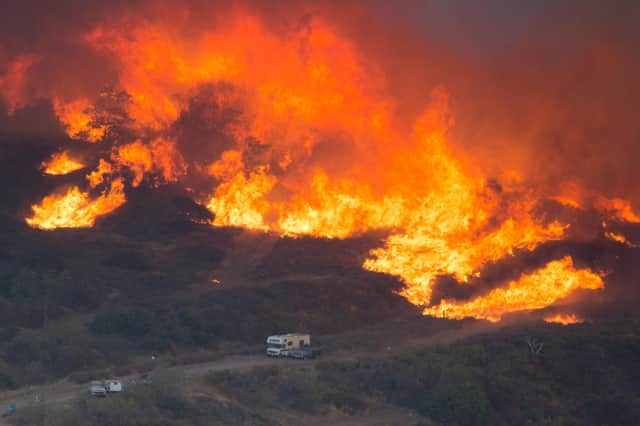Climate change: Scientists are not scaremongers but it's time to feel afraid – Scotsman comment
This article contains affiliate links. We may earn a small commission on items purchased through this article, but that does not affect our editorial judgement.


However, this was not an attack from the expected direction. Instead of accusing the global scientific community of scaremongering, the author, Eugene Linden, argued that the world’s leading experts had been consistently under-estimating the dangers of global warming.
As evidence, he pointed to the first report by the Intergovernmental Panel on Climate Change, published in 1990, and paraphrased its findings by saying that global warming would proceed at a “stately pace, that the methane-laden Arctic permafrost was not in danger of thawing, and that the Antarctic ice sheets were stable”, predictions that, unfortunately, failed to stand the test of time.
Advertisement
Hide AdAdvertisement
Hide AdThe article was an attack that some scientists thought was unfair, given how long they had been forced to defend themselves and their findings against those determined to undermine them.
However, it is certainly true that the more evidence they have gathered and the more understanding they have gained, the greater the size of the perceived threat has become.
It is a worrying trend, given there are continued uncertainties about exactly how the planet will respond to the unprecedented pace of the ongoing changes to our climate. The world-leading climate scientist, Professor Michael Mann, has warned: “Uncertainty is not our friend. It's cutting against us, not in our favour, as we see and learn more.”
In June this year, a draft report by the Intergovernmental Panel on Climate Change was leaked to the AFP news agency. It is not due to be published until February, three months after world leaders meet at the Cop26 climate summit in Glasgow, but it appears to continue the trend.
Citing the report, AFP said: “Species extinction, more widespread disease, unlivable heat, ecosystem collapse, cities menaced by rising seas – these and other devastating climate impacts are accelerating and bound to become painfully obvious before a child born today turns 30.”
Given the relative lack of action to bring about the changes necessary to avoid the worst consequences of climate change, perhaps it is now time to harness the primal motivating force of fear. After all, with no alternative planet, our natural ‘fight or flight response’ offers only one course of action.
A message from the Editor:
Thank you for reading this article. We're more reliant on your support than ever as the shift in consumer habits brought about by coronavirus impacts our advertisers.
If you haven't already, please consider supporting our trusted, fact-checked journalism by taking out a digital subscription.
Comments
Want to join the conversation? Please or to comment on this article.
